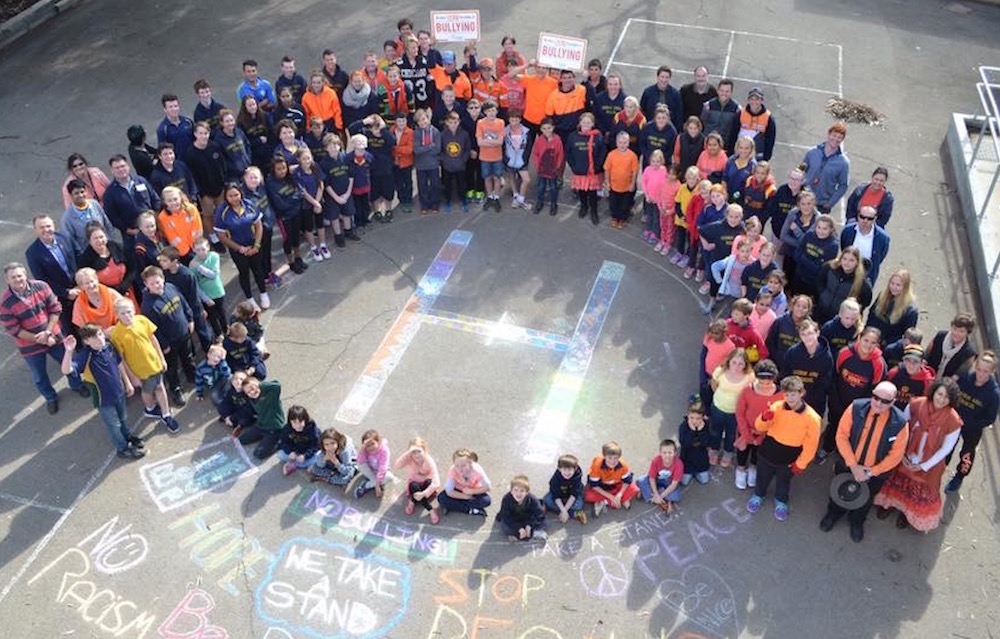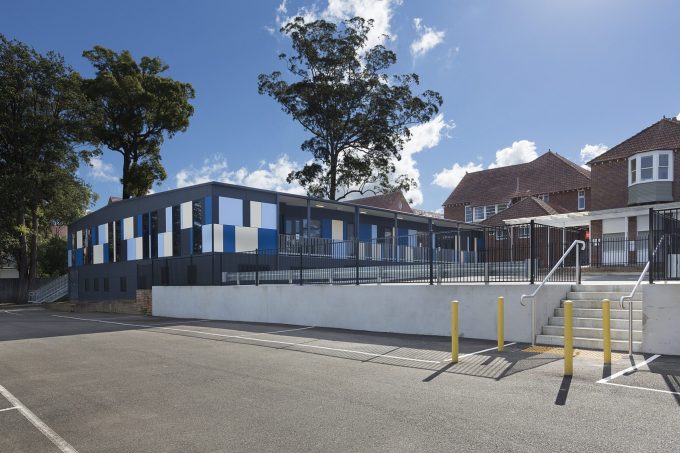Teacher wins $1M Global Teacher Prize

US teacher Keishia Thorpe, who has opened up college education for low-income, first-generation American, immigrant and refugee students, has been named the winner of the Varkey Foundation Global Teacher Prize 2021, in partnership with UNESCO. Now in its seventh year, the US$1 million award is the largest prize of its kind.
Meanwhile, Jeremiah Thoronka, a student from Sierra Leone, who invented a device that uses kinetic energy from traffic and pedestrians to generate clean power, has been named the winner of the Chegg.org Global Student Prize 2021. Jeremiah is the first winner of this new $100,000 sister award to the Global Teacher Prize which is given to one exceptional student who has made a real impact on learning, the lives of their peers and on society beyond.
Keishia, an English teacher at International High School Langley Park, Bladensburg, Maryland, was selected from over 8,000 nominations and applications for the Global Teacher Prize from 121 countries around the world. Jeremiah, a 21-year-old student from Freetown, Sierra Leone, was selected from over 3,500 nominations and applications for the Global Student Prize from 94 countries around the world.

French actress Isabelle Huppert announced Keishia as the winner of the Global Teacher Prize, and actor and humanitarian Hugh Jackman announced Jeremiah as the winner of the inaugural Global Student Prize. The announcements were part of a virtual ceremony broadcast from UNESCO’s headquarters in Paris.
Together, the Global Teacher Prize and the Global Student Prize tell inspirational stories from both sides of education. The prizes shine a spotlight on the great work teachers do in preparing young people for the future and the amazing promise some of the brightest students are showing in their learning and far beyond.
Keishia Thorpe currently teaches English to 12th-grade students at the International High School Langley Park, Bladensburg, Maryland, United States, a school where 100% of her students are English language learners and 95% identify as low-income. Keishia completely redesigned the 12th grade curriculum for the English department to make it culturally relevant to her students who are first-generation Americans, immigrants, or refugees from mostly Africa, the Middle East, the Caribbean, and South and Central America. As a result of her interventions, her English Language Learners have shown a 40% increase in their reading, which contributed to the school meeting its growth-to-target rate with a 10% increase in WIDA scores for 2019-2020 and the highest in the school district for ELLs.
Keishia dedicates a huge amount of time encouraging her high school students to apply for college, assisting them with their applications and helping them gain fully funded scholarships. She has helped her senior students in 2018-2019 alone, win over $6.7 million in scholarships to 11 different colleges with almost 100% of them going tuition-free.
Keishia’s caring goes way beyond the classroom. One of her greatest achievements was to co-found (along with her twin sister, Dr. Treisha Thorpe) U.S. Elite International Track and Field, Inc, a non-profit giving ‘at risk’ student-athletes across the globe an opportunity to use their talents as a vehicle to access fully funded scholarships to U.S. colleges and universities. U.S. Elite has built a network of U.S. college coaches with whom student-athletes are paired, with a view to earning full scholarships. To date, she has helped over 500 students get full athletic track and field scholarships. U.S. Elite has achieved over 90% college graduation of student members, approximately 20% pursued a Master’s degree, and 8% post-graduate degree.
Keishia also established an Annual Scholarship and Athletic Convention, where college coaches and admissions and compliance teams inform economically disadvantaged student-athletes about college admissions and interact with them one-on-one, allowing many to get recruited there and then. Keishia was honored with the Medal of Excellence from the Governor of the state of Maryland for her work in influencing equitable policies in education and named the National Life Changer of the Year in the entire USA for 2018-2019, an award given to teachers who inspire and go above and beyond for their students and “exemplifying excellence, positive influence, and leadership”.

Jeremiah Thoronka was born amid the fighting of the Sierra Leone civil war and grew up with his single mother in a slum camp for displaced people on the outskirts of the capital Freetown, having to burn charcoal and wood for lighting and heating. Jeremiah saw with his own eyes how, in addition to the photochemical smog making respiratory problems commonplace, his young contemporaries fell behind in their schoolwork because of a lack of decent lighting.
Energy poverty is a major issue in Sierra Leonne – with just 26% of the population having access to electricity. In rural parts of the country, only 6% of people have electricity access, with most turning to solar lanterns and dry-cell batteries. As a result, it’s led to the destruction of forests as people chop down trees for firewood, which leaves Sierra Leone highly vulnerable to extreme events like flooding and landslides. Families’ reliance on firewood and cheap kerosene generators also lead to frequent house fires.
These life-threatening disadvantages and hardships fuelled Jeremiah’s passion for renewable energy and climate change advocacy. At 17, when studying at the African Leadership University in Rwanda, he launched a start-up called Optim Energy that transforms vibrations from vehicles and pedestrian footfall on roads into an electric current. It is different from established renewable energy sources including wind or solar because it generates power without relying on changeable weather. At the same time, no battery and no electricity connection to an external power source is needed.
Optim Energy ran a successful pilot program in Jeremiah’s neighbourhoods, Makawo in the northern part of Sierra Leone and Kuntoluh east of Freetown. With just two devices, the start-up provided free electricity to 150 households comprising around 1,500 citizens, as well as 15 schools where more than 9,000 students attend.
Jeremiah is currently developing plans to expand into the healthcare sector, which needs power to chill medicines and vaccines and create sufficient light for treating patients after dark.
Jeremiah is a United Nations Academic Impact Millennium Fellow and Optim Energy was voted the most Innovative Energy Start-up 2020 by United Nations Major Group on Children and Youth (UNMGCY), and the Sustainable Development Goal (SDG) 7 Youth Constituency. Jeremiah is also one of the World Wildlife Fund’s top 100 Young African Conservation Leaders. Should he win the Global Student Prize, Jeremiah will use the prize money to expand Optim Energy to reach 100,000 people by 2030.
The other top 10 finalists for the Global Teacher Prize 2021 were Ana Maria Stelman from Argentina, Breanna Heels from Canada, Bryant Acar from the Philippines, Diana Lorena Rubio from Mexico, Evans Odei from Ghana, Juline Rault from France, David Swanston from the UK, Rebecca West from Australia and Soraya Motaharnia from Iran.
The other top 10 finalists for the Global Student Prize 2021 were Amisa Rashid from Kenya, Ana Julia Monteiro de Carvalho from Brazil, Kehkashan Basu from Canada, Lamya Butt from the UAE, Elliott Lancaster from the UK, Matine Khalighi from the US, Mirko Cazzato from Italy, Oluwadamilola Akintewe from Nigeria and Seema Kumari from India.
Sunny Varkey, Founder of the Varkey Foundation, said:
“Congratulations to Keishia for winning the Global Teacher Prize 2021 and Jeremiah for becoming the first ever winner of the Chegg.org Global Student Prize. Their incredible stories show the vital role education plays in tackling the great challenges of today and tomorrow.”
Stefania Giannini, Assistant Director-General for Education at UNESCO, said:
“Congratulations to Keishia for winning the Global Teacher Prize 2021 and Jeremiah for winning the Global Student Prize 2021. UNESCO was proud host to this year’s Global Teacher Prize ceremony at our headquarters in Paris. Inspirational teachers and extraordinary students alike deserve recognition for their commitment to education amid the learning crisis we see today. Now more than ever, we must honor and support our teachers and students as they look to rebuild a better world in the wake of COVID.”
Chegg.org has partnered with the Varkey Foundation to create the new Global Student Prize. Dan Rosensweig, CEO & President of Chegg, said:
“My warmest congratulations to Jeremiah. His inspirational work in pioneering clean, affordable energy makes him a thoroughly deserving winner of the inaugural Global Student Prize. This prize honors students everywhere. While many stakeholders are busy debating, students like Jeremiah are busy doing. They truly are the changemakers our world needs.
And congratulations to Keishia for her incredible work opening up access to college education for low-income, first-generation American, immigrant and refugee students.”
Actor and humanitarian Hugh Jackman said:
“Students everywhere are fighting for their very future. They are part of a generation that are on the frontline of the greatest challenges of our time – from climate change to global inequality. So, we must listen to their voices and shine a light on their stories.
To every dedicated student around the world working hard to build a brighter future, we thank you for everything you do while still pursuing your education.
“Congratulations Jeremiah. You have made an enormous difference to your community and far beyond. I am sure that you will now use this incredible platform to make an even bigger impact.”
French actress Isabelle Huppert, who hosted this year’s Global Teacher Prize ceremony, said:
“Huge congratulations to Keishia and Jeremiah. Thank you for all the important work you do and the inspiration you provide. I was honored to host this ceremony from UNESCO’s Paris headquarters, an organization that fights to protect our most essential values – education, culture and freedom of expression. We have seen how these values bring people together and inspire hope. Hope always begins with education.”
The Global Teacher Prize was set up to recognize one exceptional teacher who has made an outstanding contribution to the profession as well as to shine a spotlight on the important role teachers play in society.
The Varkey Foundation launched the Chegg.org Global Student Prize earlier this year to create a powerful new platform to highlight the efforts of extraordinary students throughout the world that are making a real impact on learning, the lives of their peers and on society beyond. The prize is open to all students who are at least 16 years old and enrolled in an academic institution or training and skills program. Part time students as well as students enrolled in online courses are also eligible for the prize.
Applications and nominations for this year’s teacher and student prizes opened on Tuesday 2 February 2021 and closed on Sunday 16 May 2021. Teachers who applied for the Global Teacher Prize were assessed on teaching practices, how they innovate to address local challenges, achieve demonstrable learning outcomes, impact the community beyond the classroom, help children become global citizens, improve the teaching profession and gain recognition from external bodies. The US$1m award was won last year by Indian village teacher Ranjitsinh Disale.
Students who applied for the Global Student Prize were assessed on their academic achievement, impact on their peers, how they make a difference in their community and beyond, how they overcome the odds to achieve, how they demonstrate creativity and innovation, and how they operate as global citizens.
The winner of the Global Teacher Prize was chosen from its top 10 finalists by the Global Teacher Prize Academy, made up of prominent individuals including head teachers, education experts, public officials, entrepreneurs, and leaders from science, arts and other fields. The winner of the Global Student Prize was chosen from its top 10 finalists by the Global Student Prize Academy, made up of prominent individuals who have a history of mentoring students in their studies or careers, having campaigned on behalf of student issues or having expertise in education and young people.
If teachers or students were nominated, the person nominating them was asked to write a brief description online explaining why. The teacher or student being nominated was then sent an email letting them know they had been nominated and inviting them to apply for the prize. Applicants were able to apply in English, Mandarin, Arabic, French, Spanish, Portuguese and Russian. To join the conversation online follow @TeacherPrize and @cheggdotorg







